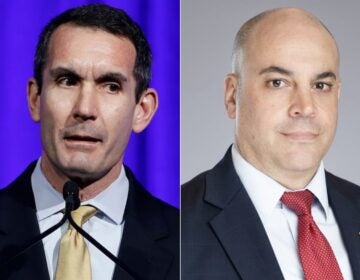Fine idea, flawed execution — our approach to testing deserves an ‘F’
ListenSometimes a perfectly reasonable idea, if carried out badly, ends up seeming dumb.
I speak, of course, of the push to use standardized tests to hold schools accountable for whether kids learn.
Given the testing fiascoes unfolding across the nation, it’s hard to raise even a weak voice in defense of this approach.
For example, in Florida, an epicenter of the high-stakes testing movement, a public groundswell seeks delay in the roll out of a new state test. Parents offer heart-rending reports of teary, test-stressed youngsters. Teachers lament teaching time lost to tests. Superintendents ask how you can judge schools based on a regimen this screwed up.
And cheating scandals, where adults worried about consequences of low scores for them, keep on flaring up, nowhere more so than in Philadelphia.
The mounting evidence that accountability testing has run off the rails is an intellectual challenge for me, because I’ve long been a proponent of the idea.
I’ve tended to dismiss as hypocritical whining the plaints of teachers unions about the horrors of “high-stakes” testing. Weren’t those the same people who were just fine issuing tests to kids as long as the stakes didn’t apply to the adults in the room?
For all those years, did anyone ask the kids getting tested by their teachers whether they thought Mom’s wrath, Dad’s control over the car keys, or their chances of getting into college struck them as high stakes worthy of anxiety?
That’s what I used to think.
But when I read that one third of school days in some locales get devoted to standardized tests, and many of the rest are spoiled by test anxiety, that even Education Secretary Arne Duncan is complaining that the testing argument is “sucking all the oxygen out of the room,” it’s time to reexamine my assumptions.
The problem, it seems to me, is not testing per se. Remove the political baggage from the topic, and almost everyone agrees that you need to test kids to see what they know and where they need help.
But the partisan baggage is heavy and central to the problem: Testing tends to be promoted by Republican politicians who really do have a vendetta against teachers, precisely because teachers unions are deeply enmeshed with the Democratic Party. So, many teachers will not trust in the need for outside testing, no matter what.
Second problem: Kids have to wade through far too many varying standards and standardized tests. This stems from the “sacred” principle of local control, which in education actually makes little sense.
Final problem: The adults running schools – lacking trust in the fairness of the testing system, and lacking the courage of their convictions – make a fetish of “teaching to the test” and infect students with their test anxiety.
Possible solutions? Two suggestions from a guy who admits he’s confused, and knows these proposals are far easier said than done.
First, use only national tests well-aligned with national standards to judge any school’s performance. These actually exist in some topics, but tend to be ignored. The main reason we don’t have solid national tests is that many of the same people pushing the accountability-through-tests idea are mired in the “local control is best” delusion.
Second, allow — in fact encourage … what the heck, insist — that teachers teach the way they believe they should. Ratchet down the pernicious adult anxiety about tests that has led to so many adult-led cheating scandals, and so much stress for children.
If teachers know what they’re doing in the classroom — and I’m confident many do, even as I fear that some don’t — the test scores will take care of themselves.
If not, that’s a sign those teachers needed to adjust their style anyway.
WHYY is your source for fact-based, in-depth journalism and information. As a nonprofit organization, we rely on financial support from readers like you. Please give today.
















